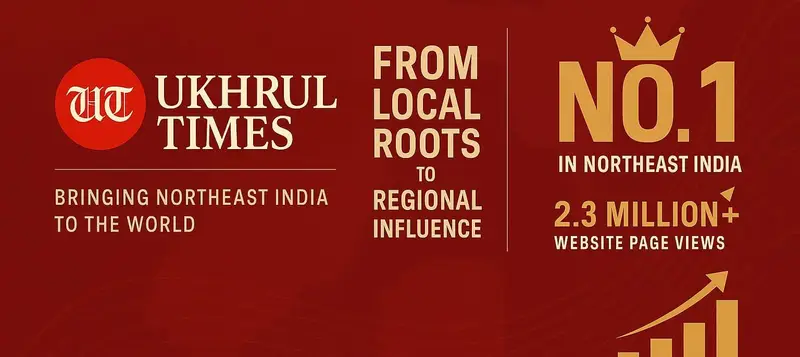Now Reading: Monsang Customary ‘Pham Eka’ at Liwachangning village Chandel Held
-
01
Monsang Customary ‘Pham Eka’ at Liwachangning village Chandel Held
Monsang Customary ‘Pham Eka’ at Liwachangning village Chandel Held

Chandel: The installation ceremony to the various post of Liwachangning village authority was held on Friday at Liwachangning community hall.
K. Khartu, chief/chairman Liwachangning village authority and Ts. Morison, Pastor Liwachangning Baptist Church were the administrator and blessing minister of the ceremony. Chiefs and pastors from all Monsang villages and Monsang CSOs leaders attended the ceremony. Leaders from neighbouring communities Anal, Lamkang, Moyon, Tarao, Maring, Chothe, Aimol etc attended the installation program.
The newly inducted members to LiwaChangning village authority members along with their respective post are K. Korenshing (Luhpuh), Th. Lovejoy (Minpuh), Sh. Beshani (Lerpuh), Ng. Ranjit (Mharpuh), Kewal Khartu (Ramthingpuh), W. Elvis (Raarpuh), Ts. Andy (Veempuh), Ngoru Kenbor (Nehpuh), Th. Rajmoni (Shanuwpuh), Ng. Birenshing (Shapuh), Kh. Kith (Thepuh). The installtion ceremony marks a joyful moment of prayer, thanksgivings, gift presentation, appreciation and refreshment.
It may be mentioned that the Monsang traditional village chief is known as ‘Eruwngpa’. He is also the ex-officio chairman of the village authority. Though he is the head of the village, however authority in the case of the Monsang society is not completely vested on the chief. In any decision-making the views and opinions of the other village authority members are taken into consideration. The nature of governance is very democratic in that sense.
The Eruwng (chief), Rampuh (asst chief), Khuwpuh (Khullakpa), Lhupuh (Luplakpa), Minpuh (Mantri) constitute a sort of executive and judiciary body of the village traditional council. All related disputes are decided by them along with the village authority members.The other officials included in the traditional village council are ‘Elerpuh’ (meaning in-charge of village youth), ‘Ramthingpuh’ (in-charge of hill range), ‘Mharpuh’ (interpreter of outside language), ‘Raarpuh’ (leader in-charge at times of war), Veempuh (in-charge of feast and festivals during functions in the village), ‘Lerpuh’ (youth advisor), ‘Shanuwpuh’ (caretaker of incoming bride into the village), ‘Chiipuh’ (record-keeper of yearly collected crops of the village) and ‘Shapuh’ (collector of contributions and record-keeper of expenditure), ‘Thepuh’ (in-charge of assisting the chief and other visiting officials.

The mode of selection to the traditional village council in the case of the Monsang Naga society is very unique and systematic in nature. Selection to the traditonal village council is done taking into account equal representation of individuals from both the two major clans of the community i.e from ‘Shimpuwti’ and ‘Reennheti’ clan. For example, if the chief of the village is selected or appointed from Ngiiriiti of the Shimpuwti clan, then the next immediate post i.e Rampuh or the assistant chief has to go to any individual from the Reennheti clan, and further selection is continued in this manner/process until all the seats are filled.
Therefore, a Monsang traditional village council comprises individuals from various sub-clans of the two major clans. This has been the tradition according to the customary law of the Monsang tribe. By doing so, every person from various sub-clans is allowed to participate in the decision-making of the village.
The post of Eruwngpa or any post in the traditional village council of the Monsang society is not hereditary. In the case of vacancy in the post of the Monsang traditional village council, caused either by death or resignation, it is filled by the man who holds the immediately lower post. If the post of chief becomes vacant due to either of the above reasons, then it is occupied by the ‘Rampuh’ (assistant chief) and follows by ‘Khuwpuh’ and so on. Any post of the Monsang village council, including village chief, is therefore not hereditary. It is held by men of different clans or sub-clans of the tribe. This democratic system of election or selection of leaders in the village administration is a living tradition of the past which is still practised in the present Monsang Naga society.






























































